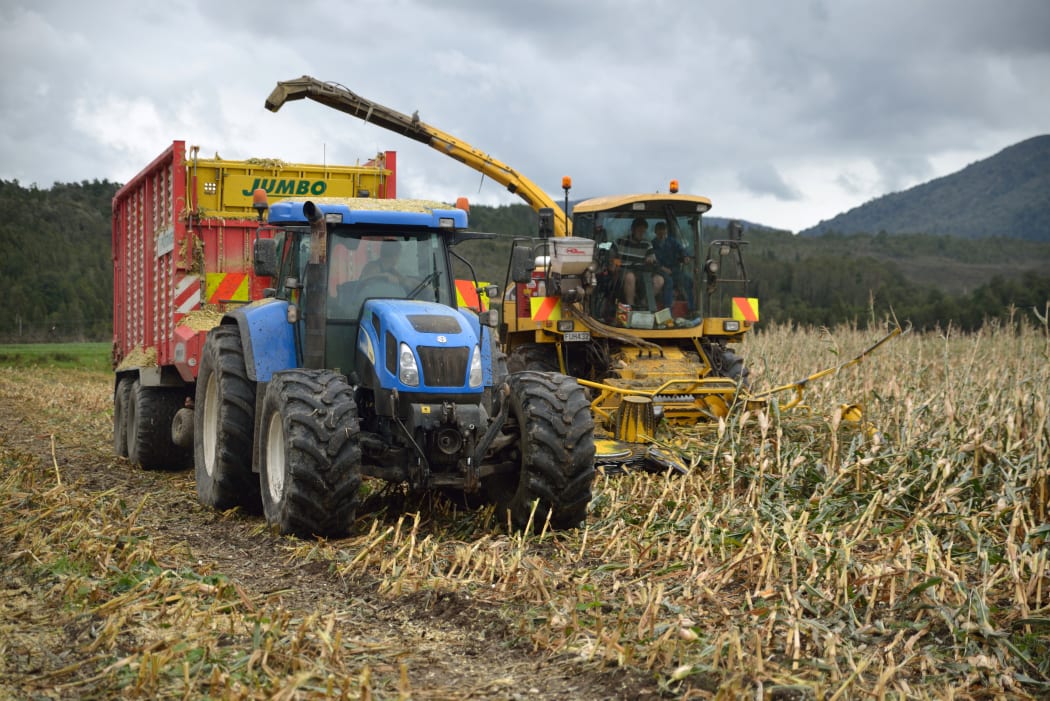It's not surprising that many dairy farms prefer to employ foreigners, because they are willing to work huge hours to help keep work visas, says a dairy industry veteran.

Workers harvest a crop of maize for silage on a dairy farm in Westland. Photo: 123RF
Prime Minister John Key said yesterday that immigrant workers were needed for jobs such as horticulture because some unemployed New Zealanders did not have the right work ethic.
Deputy Prime Minister Bill English made similar comments earlier this year, saying New Zealanders available for farm work were hopeless - a claim that was supported at the time by dairy farm employers.
But Harry de Brouwer, who has had nine years in the dairy industry managing staff and running farms, said it was the type of work that tended to put New Zealanders off.
"When you compare it to other industries within New Zealand, like the forestry sector and other people that work in town, I think it's a little bit draconian in their ways of thinking sometimes.
"They want you to sort of be like a sharemilker, but let's face it, some people don't want to be a sharemilker, they just want a job."
Mr de Brouwer said many farm workers worked as hard as the sharemilker.
"You end up working long hours with minimal pay for not much gratitude at times."
He said although he enjoyed the variety of the job and the valuable and transferrable skills he had gained, the hours did stack up.
"Most people work on a roster between maybe 11 days and some people work 21 days on and two days off. The hours you do depends on whether you're short staffed or not, but that happens quite a bit because people fall out working that amount of hours.
"I've heard of guys working 139 hours a fortnight, with two days' break."
There were obvious differences between foreign workers and locals, Mr de Brouwer said.
"I think Kiwis have more of a choice, when you have a foreigner they're obviously working towards a work visa so if they leave their job it might affect their visa, they're more willing to put up with the work because the visa is more important to them than anything else at that time."
Mr de Brouwer said the issue was worse on larger farms.
"The bigger the farm the more disgruntled people can become. If you're working with 250-300 cows you can deal with the workload a bit more. But if you pop up over 1000 cows and lose a staff member then that becomes more of a load on the people."







